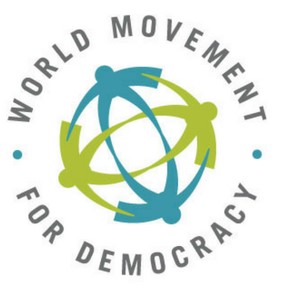Happy International Human Rights Day!

Today, we celebrate the 69th anniversary of the Universal Declaration of Human Rights – the “Magna Carta” for the fundamental freedoms of humanity. Since its inception, the Declaration has served as a powerful tool and has become the foundation for international law protecting civil society’s ability to improve societies, strengthen democratic values and institutions, and make the world a better place. The World Movement for Democracy stands in solidarity with the citizens who remain resolute in their commitment to promote human rights. Below, we highlight some remarkable milestones civil society members have achieved over the past year.
The Impact of the Rule of Law in Africa
Civil society played an instrumental role in providing evidence that was used by the International Criminal Court’s (ICC) to convict Hissène Habré, a former president of Chad, who committed numerous human rights atrocities as he ruled with an iron fist between 1982 and 1990. When Habré’s supporters threatened to disrupt his ICC tribunal in Senegal, “141 African human rights groups from 32 countries” united to express support for Chadian civil society’s case against Habré. In 2017, the ICC upheld Habré’s conviction, which required the dictator to compensate the victims of human rights abuses perpetrated under his rule. The case was a victory for Chadian civil society as well as the broader accountability movement throughout Africa.
The Resilience of Indigenous Rights Activists
Indigenous rights activists are increasingly at-risk for their human rights work; in 2016, nearly 200 were killed. Despite the tremendous dangers they face, they have continued to successfully defend their rights and advocate for policy change. In 2017, advocacy groups successfully pressured the Ecuadorian government to reverse its decision to dissolve the indigenous rights organization, Fundación Pachamama. Ecuador’s Ministry of the Environment ruled that the previous administration had “violated due process” when they ordered the organization’s dissolution. Peruvian activists also saw an improvement in indigenous rights when in October 2017, the government passed a law requiring itself to discuss environmental issues with indigenous communities when negotiating contracts that affect their land rights. The new consultation process is the result of activists’ years-long effort to protect their ancestral land from foreign oil companies seeking to exploit natural resources in Peru.
The Bravery of Citizen Journalism
Since 2011, Syrian citizens have endured the hardship and horrors of a war that has ravaged their country. Despite the great danger they face, citizen journalists continue to draw attention to human rights abuses their communities suffer. The internationally renowned citizen journalist group Raqqa Is Being Slaughtered Silently educates the international community about the situation in the city of Raqqa, which was controlled by ISIS and “virtually impossible to enter” until recently. In July 2017, a critically acclaimed documentary about their work entitled “City of Ghosts” was released, and demonstrated how the group’s reporting is defying nearly all odds to bear witness to the consequences of Syria’s civil war.
The Spirit of Democratic Voices
In 2017, the international community mourned the loss of the Chinese human rights activist and political prisoner, Liu Xiaobo, who died from cancer after being denied treatment while he was in prison. Despite his passing, Xiaobo’s human rights work continues to inspire pro-democracy activists around the world, including a new youth-led movement, the Network of Young Asia Democrats (NOYDA), in Hong Kong. In 2017, NOYDA’s strength and influence grew as they called for the release of political prisoners in Hong Kong and advocated for democratic reform in the country. Click here to sign NOYDA’s petition calling for the release of political prisoners.
The Global Movement for Accountability
In 2017, Canada, Lithuania, and the United Kingdom adopted the Global Magnitsky Act. The legislation grants governments the authority to impose sanctions “against individuals suspected of involvement in human rights violations.” Civil society championed the legislation, which is named after Sergei Magnitsky, a Russian lawyer who was murdered for exposing a $230-million corruption scheme in his home country.
Region: Africa | Asia | Eurasia | Global | Latin America / Caribbean | Middle East / North Africa | Topic: Human Rights
